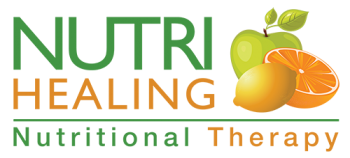Water, the body's most important nutrient - July 2008
What is water good for?
Many people today are depriving themselves of our most precious nutrient Water, it is your body's most important nutrient and is involved in every bodily function; making up to 75% of your total body weight. The water we drink provides for cell function and all it's requirements, any decrease in water intake directly affects the activity of cell function.
Water also helps you to:
- Maintain body temperature
- Metabolize body fat
- Aids digestion
- Lubricates and cushions organs
- Transports nutrients and energy to muscles
- Removes waste from the tissues
- Flushes toxins from your body
What happens if we don't take in enough water?
Our bodies lose approximately 1.5 litres of water a day through the skin, guts, lungs and via the kidneys as urine, thus ensuring that our toxic substances are eliminated from the body. We also make about a third of a litre of water a day when glucose is 'burnt' to produce energy. The ideal daily intake should be around 2 litres per day from food and drink.
Failure to take in enough water results in dehydration, which can be a mild or serious problem.
Dehydration
Dehydration is the loss of body fluids that can occur because of diarrhea, vomiting, heavy sweating, fever, not drinking enough fluids, drinking too much caffeine & alcohol and over exposure to the sun. Without these essential fluids, our bodies cannot function properly.
Mild dehydration
The symptoms are:
- Reduced alertness
- Reduced concentration
- Slower reaction times
- Tiredness
- Headaches
- Feelings of nausea.
Severe dehydration
As dehydration becomes more severe, so do the symptoms. Dry mouth, feeling of 'thirst', dizziness and physical weakness will start to set in.
Check the veins around your wrist if they are hard to find visually through the skin and they look like threads instead of being plump & full, then chances are you are dehydrated.
Check your urine - it should be pale yellow in colour - if it is dark, with a strong odour and a decrease in volume, then you are dehydrated.
If fluid balance is not improved the person will have progressive problems with:
Cardiovascular
Your body will react by pulling water from other places including the blood. This causes the closing of some smaller vessels (capillaries), making your blood thicker, more susceptible to clotting and harder to pump through your system. This can have serious implications such as hypertension, high cholesterol and heart disease.
Kidney function
One of the kidney's most important roles is to make sure the body has the right amount of salt and fluids. The body is constantly losing water in the urine, stools and by evaporation from the skin and lungs. If the kidneys sense that you are losing too much fluid, they will do what they can to minimize the loss by retaining as much salt and water as they can. Decrease in volume of urine, becoming dark and concentrated with a strong odour.
How do we make sure were getting enough Water?
Daily intake of water should be at least 2 litres a day or 8 glasses (tumble size).
There are 3 ways water is utilised by the body:
Food we eat
Fruit & vegetables consist of around 90% water; they supply it in a form that is easy for the body to use and at the same time providing the body with essential vitamins and minerals.
Example - 4 pieces of fruit and 4 servings of vegetables amount to 1.1kg providing a litre of water.
Fluid we drink
In the form of: water, herbal or fruit teas and diluted fresh juices.
Avoid - Alcohol, Tea, Coffee, and fizzy drinks these contain caffeine which is a diuretic.
Diuretic's force out water from the body along with essential nutrients, so you actually lose more water!!
Through 'glucose metabolism'
Remember a third of a litre of water is produced when glucose is burnt to produce energy.
Make sure your water is of the highest quality!
Although tap water provides us with calcium it also contains significant levels of chlorine, nitrates, pesticides, hormones, lead and aluminum to name a few. Concerns over pollutants in water have led many people to switch to bottled or filtered water.
Filtered water such as Brita will filter out some of these pollutants, bottled water a few more. However bottled water is expensive and not good for the environment. Plastic bottles also contain chemicals called phlates substances used to soften plastics, these chemicals are hormone-disrupting called 'xenoestrogens'. When the water in these bottles is exposed to sunlight, then these chemicals can leach out into your water, so avoid drinking water that has been left in the sun!
Alternatively you could opt for a reversed osmosis system, which removes all contaminants and provides you with pure drinking water.
Tip of the month!
- Make water your first choice, taking precedence over all other beverages
- Measure your water intake. People generally think they are doing better than they actually are.
- Carry your water with you at all times.
- Buy a water filtration system that will remove all contaminates.
- Develop a water routine - ie drink 1 glass of warm water & lemon before breakfast, drink 3 glasses before lunch and 3 glasses in the afternoon and a warm glass of water in the evening. This will give you your 2 litres.
- Be totally aware that when you drink water, you are sustaining life, health and happiness.
- Great BOOK to read - Your bodies Many Cries for Water by Dr. F. Batmanghelidj
Drink Up!
